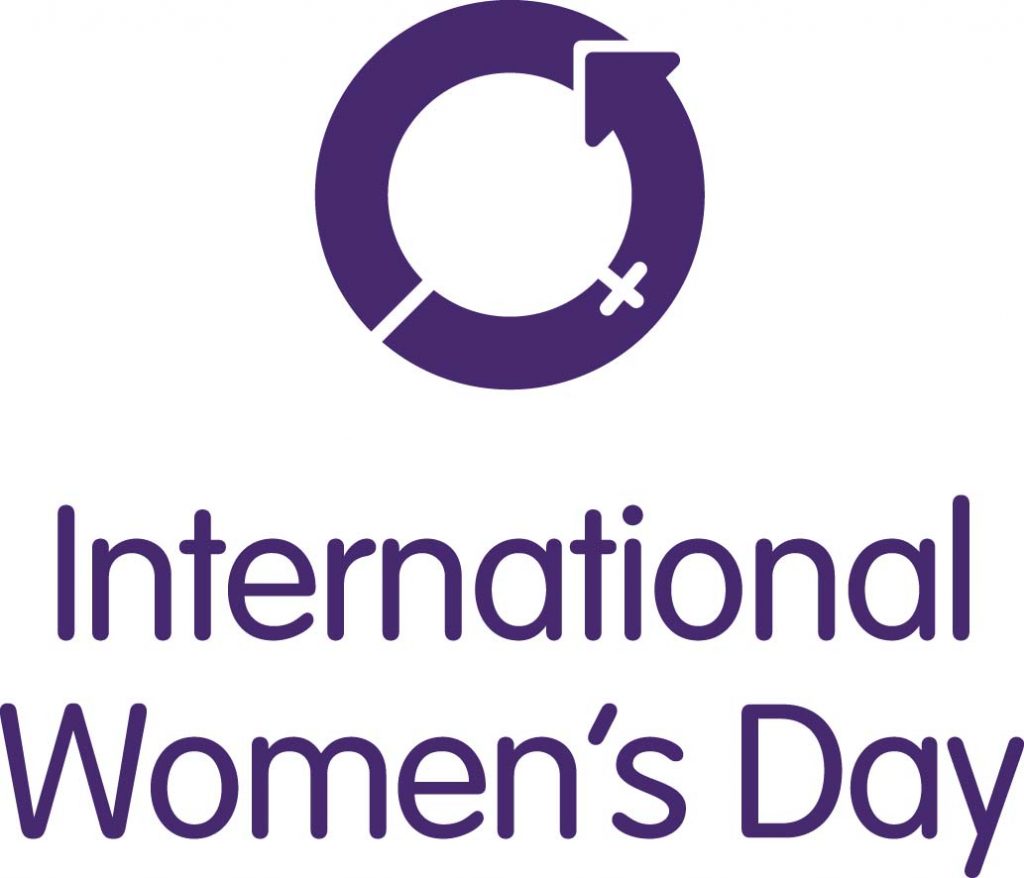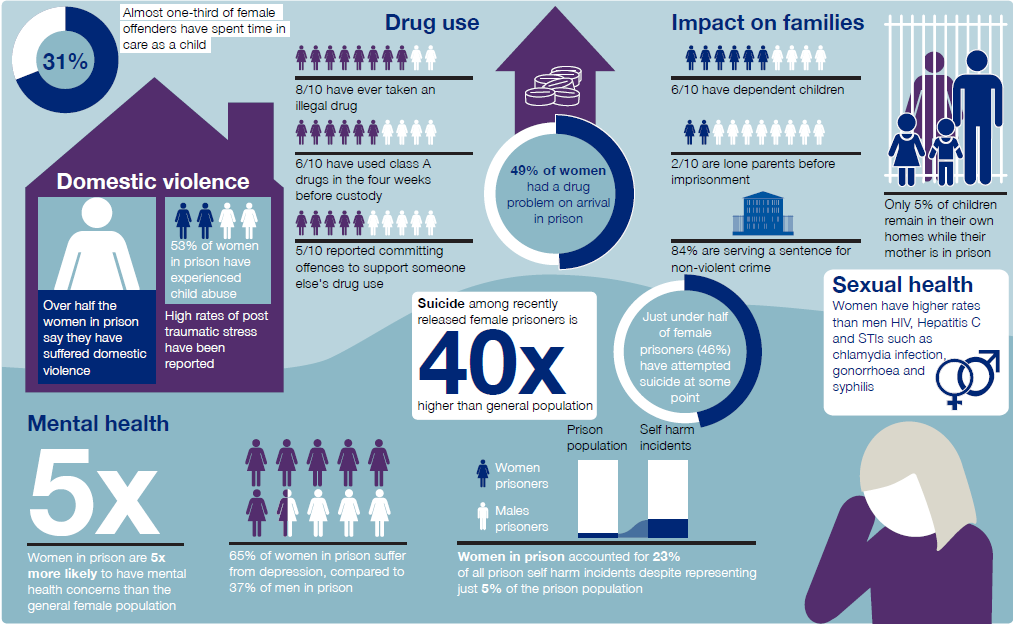
International Women's Day (IWD), which has taken place on March 8 for over a century, is a global day celebrating the social, economic, cultural and political achievements of women. But, IWD is not only about acknowledging the barriers that women have overcome over the years, but also remembering that in some cases we still have a long way to go towards achieving gender parity.
Gloria Steinem, world-renowned feminist, journalist and activist said: "The story of women's struggle for equality belongs to no single feminist nor to any one organisation but to the collective efforts of all who care about human rights."
As an organisation which exists to protect and improve the nation's health and wellbeing, and reduce health inequalities, Public Health England is part of this collective effort.
It has long been recognised that people in prison are typically in poorer health. Rates of physical and mental health problems and drug or alcohol dependence are higher and this group struggle to access health services (in custody and in the community). This is often on top of other social issues such as poverty, indebtedness, unemployment, poor education and homelessness.
What’s clear is that women in prison are often even more affected than their male counterparts. For example, 65% of women in prison suffer from depression compared to 37% of men and women in prison account for 23% of all prison self-harm incidents despite representing just 5% of the prison population.
Historically, prisons have almost invariably been designed for the majority male prison population – from the architecture of prisons, to security procedures, to healthcare, family contact, work and training.

We also know that a large number of women who face prison sentences come from deprived backgrounds. Fifty three percent of women in prison report having experienced emotional, physical or sexual abuse during childhood and forty one percent of prisoners in one survey said that they had observed violence at home as a child. These negative childhood experiences can have a profound impact on women’s health outcomes and their offending behaviour. Women also tend to have roles as parents or primary care givers in families, meaning time in prison no only impacts on them but on their families and the people they look after.
Time in prison can be viewed for many as the first opportunity to turn their lives around, improve their health and access the services they need. If we want to improve women’s health and well-being in prison it is essential to focus on the root causes of their situation; to prevent negative experiences from happening in the next generation of children, to develop strategies to intervene early and to give comprehensive support to mitigate the effects of negative childhood experiences.
The new Gender Specific Standards to Improve Health and Well Being for Women in Prison in England, published by Public Health England, highlight the need for a system approach. This includes:
- Preventing offending by tackling the wider determinants of health and supporting upstream prevention of substance misuse, violence, unemployment and exclusion from school
- Ensuring that while in prison women have access to high quality health and care services to support improvements to their mental health, substance misuse and general health
- Developing an environment in prison which gives opportunities for women to improve their health by improving nutrition and encouraging participation in physical activity
- Giving adequate support to women who have children, within the prison in mother and baby units, and those who are separated from their children
- Ensuring that support is available for women who leave prison in terms of housing, training and employment opportunities, appropriate access to social welfare and other benefits if applicable, continuation of treatment and referral into appropriate community services
Implementation of these standards is a shared objective for HMPPS, NHS England and PHE. We are aware that these standards are not all currently all being met and will not all be achieved overnight. But, they will form a programme of work which aims to improve quality of services and outcomes for women in prison. With these standards in place all health and justice partners can work together across the system and put in place pathways to improve the health and well-being of women in contact with the criminal justice system, in custody and in the community.

1 comment
Comment by Guy Jonathan posted on
That's all well and good. However, feminists want women to have equal rights as men. But here You're asking for special treatment be given to women in prison. You're saying that there should be different security procedures etc. You might not be aware but there are women who are in prison for major crimes such as murder, grievous bodily harm, aggravated assault,manslaughter, child abuse (sexual as well), arson, armed robbery. Women in jail are not little flowers that need special care. You're asking for special treatment rather than equal rights and I think your figures are not exact. You don't even mention your sources. The rates of depression and suicide are actually higher if not equally high in the male custodial establishments. Men just don't openly talk about it. I've worked in the prison service for approximately six years. What's your expertise on the subject?